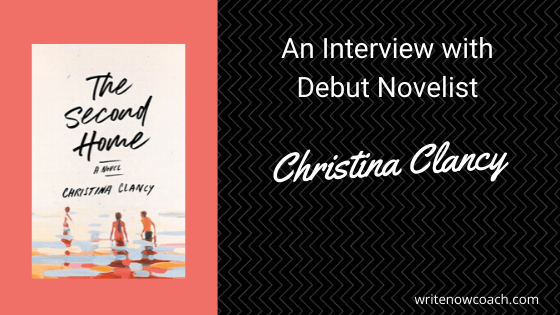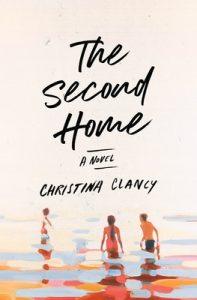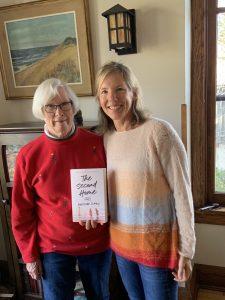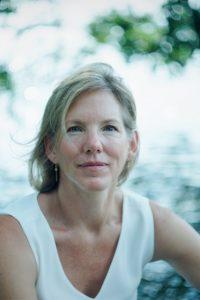Writers@Work: An Interview with Christina Clancy
June 2, 2020
Note From Rochelle
Dear Writers,
What a week! If you are frustrated or worried about what is happening in the United States right now, this Black Lives Matter reading list from Left Bank Books will connect you to books that can help you.
For those of you who need to get work done and cannot focus, take a look at my book Level Up: Quests to Master Mindset, Overcome Procrastination and Increase Productivity. It provides exercises to help you overcome distractions and get stuff done. (And it’s on sale!)
Today I’m delighted to welcome Christi Clancy, author of The Second Home, to the blog. If the interview piques your interest, Boswell Book Company is sponsoring an online event with her tonight at 7:00 PM CT. Clancy will be in conversation with Lauren Fox, author of Days of Awe.
Happy Writing!
Rochelle
Writers@Work: An Interview with Christina Clancy

Welcome to the blog, Christi! Can you tell us about your new book, The Second Home?
Thanks, Rochelle. Happy to be here!
 The Second Home is a book about a family from Milwaukee, the Gordons. The parents are teachers so that they can spend their summers in an old house on Cape Cod that has been in his family for generations. One summer, they visit the house and bring along Michael, a teen boy the family plans to adopt. This is a bit complicated because of the tensions that can rise up when a family changes, and especially because Michael has more than brotherly feelings for Ann, one of the sisters.
The Second Home is a book about a family from Milwaukee, the Gordons. The parents are teachers so that they can spend their summers in an old house on Cape Cod that has been in his family for generations. One summer, they visit the house and bring along Michael, a teen boy the family plans to adopt. This is a bit complicated because of the tensions that can rise up when a family changes, and especially because Michael has more than brotherly feelings for Ann, one of the sisters.
Something happens to tear the family apart, and the siblings end up going their separate ways—until fifteen years later, when the parents die. Ann and Poppy inherit the house, and it turns out that Michael has a legitimate claim to the estate. He re-enters their lives because he wants the house, but he also wants to set the record straight.
 The novel is very much about places—the places we live, and the places set aside from our usual concerns where we make a point of connecting with family. It’s also about moving around, making or rejecting the idea of home, the tensions that arise when generations change, and the power of houses to hold families together.
The novel is very much about places—the places we live, and the places set aside from our usual concerns where we make a point of connecting with family. It’s also about moving around, making or rejecting the idea of home, the tensions that arise when generations change, and the power of houses to hold families together.
You have a PhD in Creative Writing and have taught college writing. You’ve written essays, short stories, and now a novel. What advice do you give to people transitioning from writing short pieces to something longer, like a novel?
I started out writing short stories. I love working on stories because they involve so much craft. You learn how to develop character, write dialogue, establish setting, and determine the voice the story needs to be told from. You get a more immediate sense of when it’s really done and all the elements have clicked together.
I thought that writing a novel would be like writing a really long short story, but it didn’t turn out to be like that at all. It’s hard to work on it piecemeal while keeping the bigger picture in mind. And plot was really hard for me. I always thought that a novel needed a great big, twisty plot, while a short story can be satisfying with the slightest key change or small realization.
It’s really easy to give up a novel in an early draft because it takes so long to figure out what story you are telling, and why. And for me, I go crazy having to make so many decisions. It’s a lot of work if I you decide to go back and make major changes. That said, I’ve found that once I get through the first draft and have a better sense of the arc of the narrative, revising is fun because I get to know the characters and because I have a better sense of what the story is about. When I was struggling with my last draft my editor asked me why I wanted to tell the story. It was such a basic question but it’s easy to lose your way. Now that I’ve written two books (the next one is just about done), I don’t know that I can go back to the shorter form.
Essays are totally different. I love essay writing and find them great palate cleansers, although I can sometimes write myself into a corner and struggle with my angle. I haven’t written as many essays because of the books, but hope to write more soon.
This year, my blog’s theme is all about staying creative and productive despite challenges. What are some of the tools that you use to be productive amid challenges?
That’s a timely topic given the Covid-19 crisis. I was really distracted at first. It helps to give yourself permission to be creative. It isn’t trivial to make art, and it isn’t selfish. Honestly, if someone can read something I’ve written and get lost in it for a while, there’s power to that. So I guess the tool is to remember that what we create matters. We need art and culture now more than ever. And since crowds and groups aren’t happening for the near future, a lot of new culture will be coming from books.
Can you talk about promoting your book during a pandemic? What has been interesting or surprising to you about this process?
I don’t want to sugarcoat the sadness I feel about having to switch to all virtual events. I had a beautiful tour lined up and I was so looking forward to connecting with readers in person. That said, now that some of my virtual events are getting scheduled, I am growing excited to reach people who wouldn’t otherwise be able to come to a bookstore, or a reader who isn’t used to seeing authors at book events to begin with. And I’m having so much fun watching other writers on their Zoom book talks.
What are you reading now?
I’m reading Be Frank With Me by Julia Claiborne Johnson, a new friend I met recently. Her novel is so funny and tender, and the language is incredibly precise. I just finished The Imperfects by Amy Meyerson. It’s a great complement to my book—a dysfunctional family and an object that has the power to bring them together or tear them apart.

Credit James Bartelt
About the author. Christina Clancy’s work has appeared in the New York Times, The Washington Post, The Chicago Tribune, The Sun Magazine and in various literary journals, including Glimmer Train, Pleiades and Hobart. She holds a PhD in Creative Writing from the University of Wisconsin-Milwaukee. The Second Home is her first novel.








